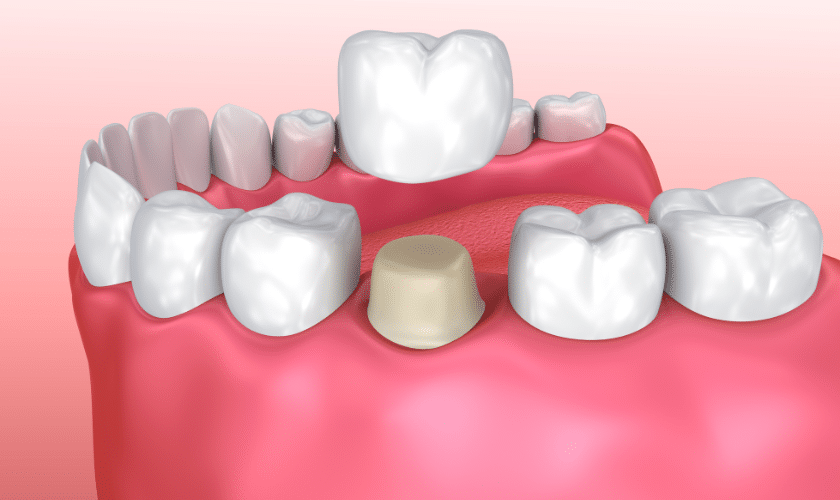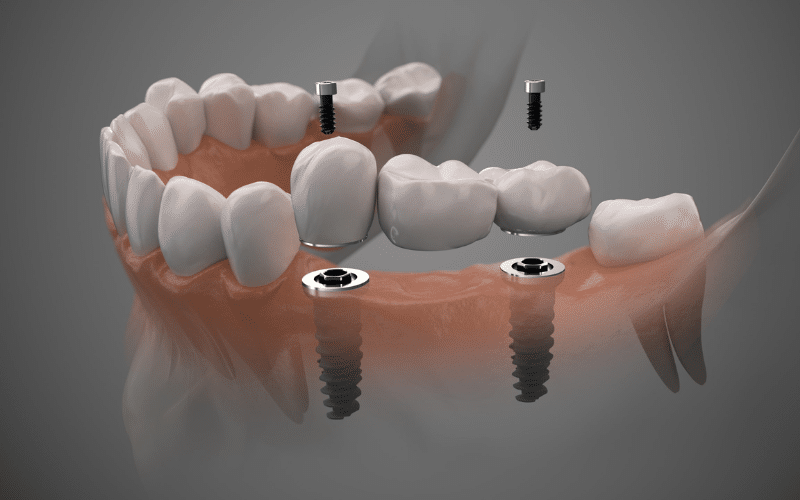When a tooth is missing or damaged, it can significantly impact your ability to chew and the overall functionality of your smile. That’s why the replacement of such teeth is a crucial consideration. In the realm of dental restoration, two excellent options exist: dental crowns and fixed bridges. Unfortunately, many individuals are unfamiliar with the distinctions between the two, leading to suboptimal decisions.
If you’re grappling with the decision of whether to opt for dental crowns or fixed bridges for the restoration of a damaged or missing tooth, this article aims to provide clarity. Delving into the advantages and disadvantages of each option, it serves as a comprehensive guide to empower you in making an informed choice. So, without further delay, let’s explore the nuances of these dental restoration solutions.
What are Dental Crowns and Bridges?
Dental bridges serve as oral prosthetics, bridging the gap between teeth that may be lost due to accidents. These bridges now come in various finishes and materials, offering versatile options for restoring your smile. Regular checkups and diligent dental hygiene practices can contribute to the longevity of a fixed bridge, with the potential to last for more than 15 years. While some drilling may be involved in the process of fixing a bridge, when administered with proper numbing by your dentist, the procedure should be relatively painless.
Conversely, dental crowns are utilized to cap or cover damaged teeth, reinforcing while enhancing alignment, appearance, and shape. Crowns crafted from materials like ceramic or porcelain are carefully designed to match the natural color of your existing teeth seamlessly.
In addition to restoring fractured teeth, dental crowns play a crucial role in protecting weakened teeth from further damage. The longevity of a well-maintained crown can extend beyond 15 years, contingent upon consistent oral hygiene practices and routine checkups.
Explore the four types of dental crowns that your dentist might recommend for various dental needs:
Ceramic Dental Crowns:
- Ceramic porcelain-based crowns excel in restoring front teeth due to their seamless integration with your natural teeth. However, they may not be suitable for pre-molars and molars, as ceramics are more prone to breakage when exposed to heavy biting forces.
Porcelain Fused to Metal Dental Crowns:
- Combining strength, durability, and aesthetics, these crowns offer a balance that surpasses many alternatives, ensuring a longer lifespan.
Gold Alloys Crowns:
- A blend of copper, gold, and other metals, gold alloy crowns establish a robust bond with your teeth while resisting wear and fractures.
Base Metal Alloys Crowns:
- Crafted from non-noble metals, these crowns exhibit corrosion resistance, enhancing their durability compared to some other materials.
Pros and Cons of Dental Crowns:
A dental crown is used to restore a damaged tooth; it has some distinct benefits over other tooth replacement solutions. However, there are also cons of crowns that should be examined to determine the best possible treatment for every patient.
Pros of Dental Crowns:
Prevention of Further Damage:
- Dental crowns act as protective shields, preventing additional damage to already worn-out teeth.
Post-Root Canal Safeguard:
- After a root canal procedure, crowns serve as protective reinforcements for treated teeth.
Stabilization of Broken or Cracked Teeth:
- Crowns effectively hold severely broken or cracked teeth together, restoring structural integrity.
Aesthetic Improvements:
- Crowns can alter the color or shape of a tooth, enhancing its overall appearance.
Coverage for Implants:
- Dental crowns are used to cover dental implants, completing the restoration process.
Support for Decay-Damaged Teeth:
- Crowns provide crucial support for teeth that have been significantly damaged by decay.
Cons of Dental Crowns:
Irreversible Tooth Filing:
- The process of fitting a dental crown involves filing the tooth into the proper shape, often an extensive and irreversible procedure.
Post-Operation Discomfort:
- Some patients may experience discomfort, particularly sensitivity to cold or hot stimuli, after the crown placement procedure.
Higher Cost:
- Dental crowns tend to be more expensive compared to alternative teeth restoration procedures, impacting the overall financial consideration for patients.
- Understanding the nuanced advantages and drawbacks of dental crowns enables patients to make well-informed decisions regarding their oral health. While the irreversible nature of tooth filing and potential discomfort post-operation are considerations, the protective and aesthetic benefits of crowns play a pivotal role in restoring and enhancing dental health. It’s crucial to weigh these factors against individual preferences and circumstances for an optimal treatment choice.
Pros and Cons of Dental Bridges:
Exploring the merits and drawbacks of dental bridges can aid in determining whether they are a suitable option and how they compare to dental crowns. Understanding these advantages and disadvantages is key to making an informed decision about your dental care. Here’s a closer look at the pros and cons of dental bridges:
Pros of Dental Bridges:
Restoration of Missing or Damaged Teeth:
- Dental bridges effectively replace missing or damaged teeth, addressing both aesthetic concerns and functional deficiencies.
Aiding in Eating and Chewing:
- The presence of dental bridges facilitates normal eating and chewing, contributing to effective food digestion.
Enhanced Speech and Smiling:
- Dental bridges empower patients to speak and smile confidently, free from inhibitions related to tooth loss.
Aesthetic Compensation for Tooth Loss:
- Aesthetically, dental bridges compensate for natural tooth loss, significantly boosting the self-confidence and self-esteem of patients.
Cons of Dental Bridges:
Pressure on Surrounding Structures:
- Dental bridges exert pressure on adjacent structures, particularly the two teeth attached to the device, which can impact them over time.
Limited Solution for Underlying Structural Issues:
- While addressing the visible concern of missing teeth, dental bridges may not fully resolve underlying structural issues within the dental framework.
In deciding whether dental bridges are the right choice for you, weighing these pros and cons is essential. While they offer significant aesthetic and functional benefits, potential pressure on surrounding structures and limitations in addressing underlying issues should be considered. Consulting with your dentist can provide personalized insights into your unique dental needs and guide you toward the most appropriate treatment option.





